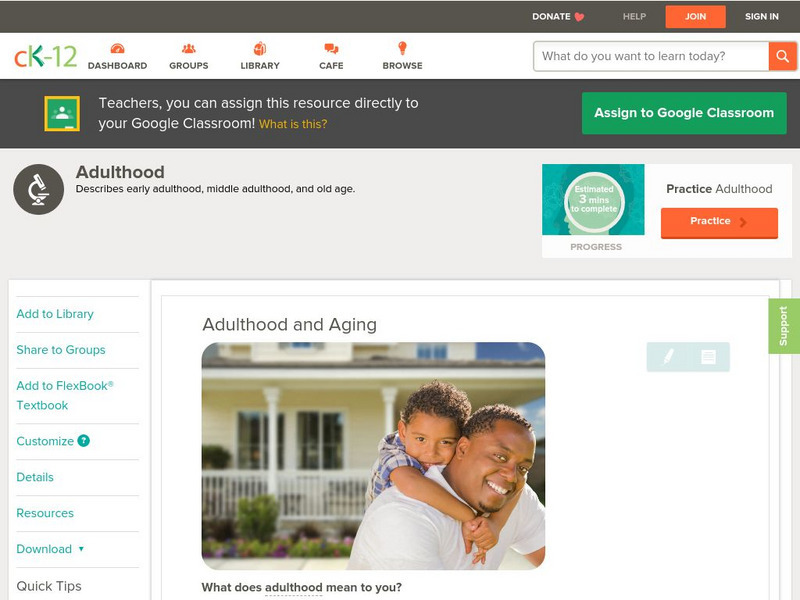Hi, what do you want to do?
Curated OER
Biosphere II
Young scholars continue their examination of the existence of life on Earth. In groups, they determine the role of the water cycle and other biogeochemical cycles play in keeping balance on Earth. They participate in experiments to...
Agriculture in the Classroom
A Rafter of Turkeys
How did that turkey get from the early Aztec culture to your table? Learn about the history of wild and domesticated turkeys in North America, as well as their inclusion in Thanksgiving traditions, with a two-part agricultural science...
Sociology Central
Functionalist View of the Family
Any social science class studying functionalism and family may benefit from these eight pages of background information and activities. It does not include specific learning objectives, assessments, or rubrics, but it is a great source...
Curated OER
Birth, Growth and... Reproduction!
Learners research the Arctic Hare and chart relevant information under month headings. They compare the information about the Arctic hare to other Arctic mammals.
Curated OER
Pesticide Watch Card
Students examine human health by identifying dangerous pesticides. In this agriculture lesson plan, students research the food production system in the United States and discuss dangers such as pesticides, chemicals and insecticides...
Curated OER
What is a Karst
Students investigate landforms by holding a class experiment. In this topography lesson, students define the word "karst" and discover why sinkholes are created on the surface of the Earth by completing worksheets. Students create a...
Curated OER
Peeled Trees Tell The Story
Students investigate the diversity of life that is found in Montana. They research some of the different interactions that organisms have with their environment. The lesson includes an extensive introduction for teacher information....
CK-12 Foundation
Ck 12: Life Science: Adulthood and Aging
[Free Registration/Login may be required to access all resource tools.] When is a person considered an adult? That depends. Most teens become physically mature by the age of 16 or so. But they are not adults in a legal sense until they...












